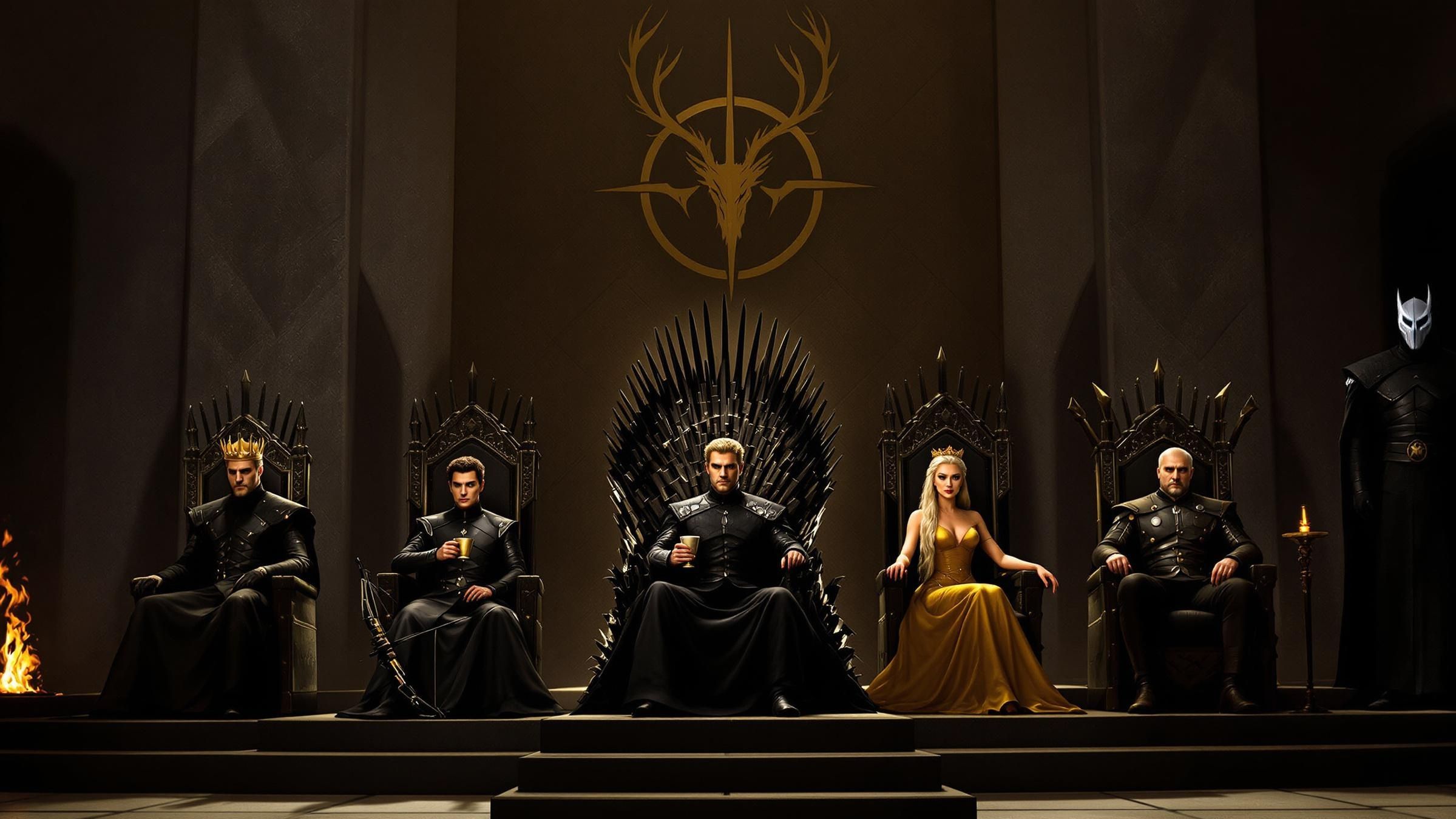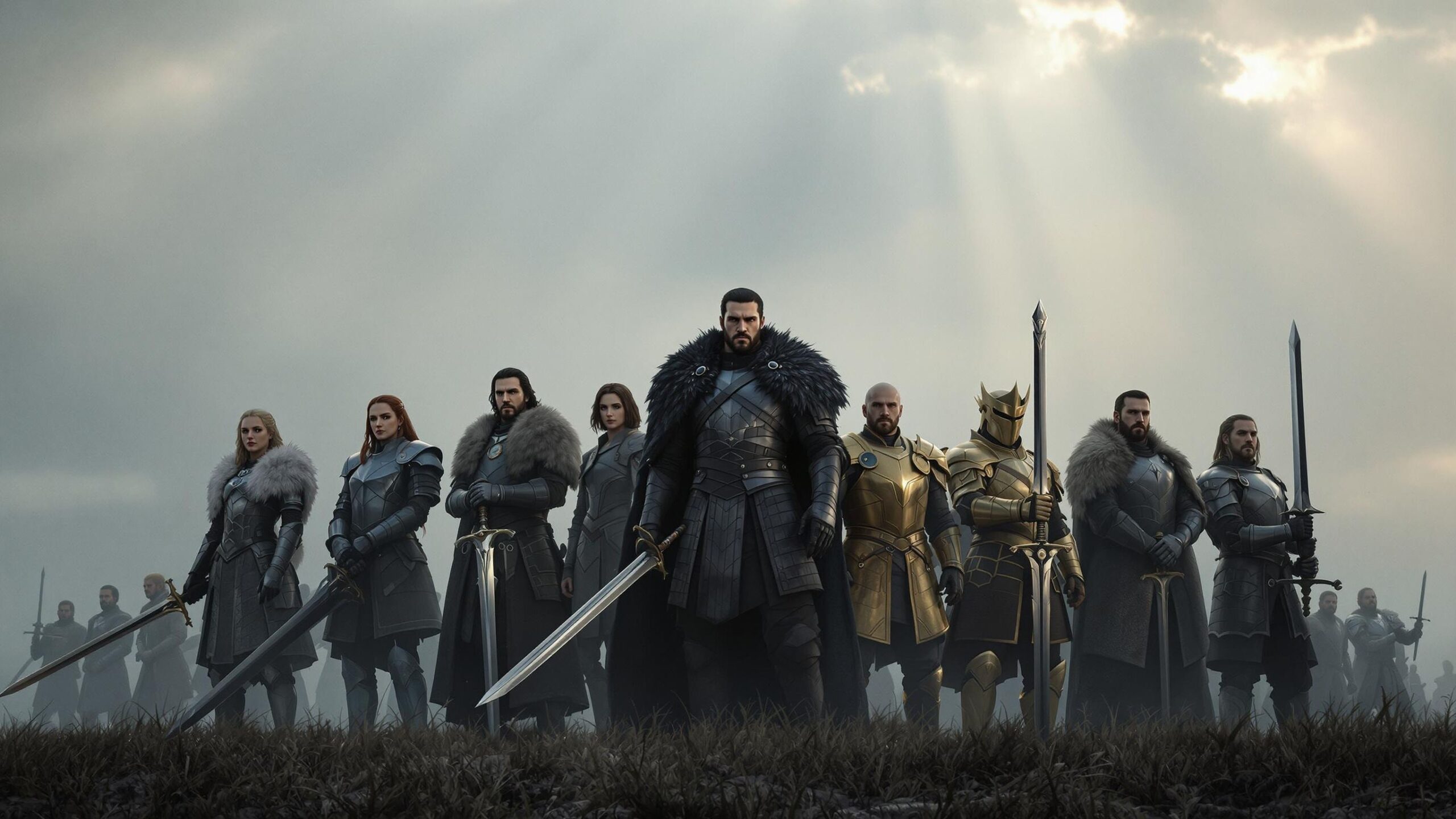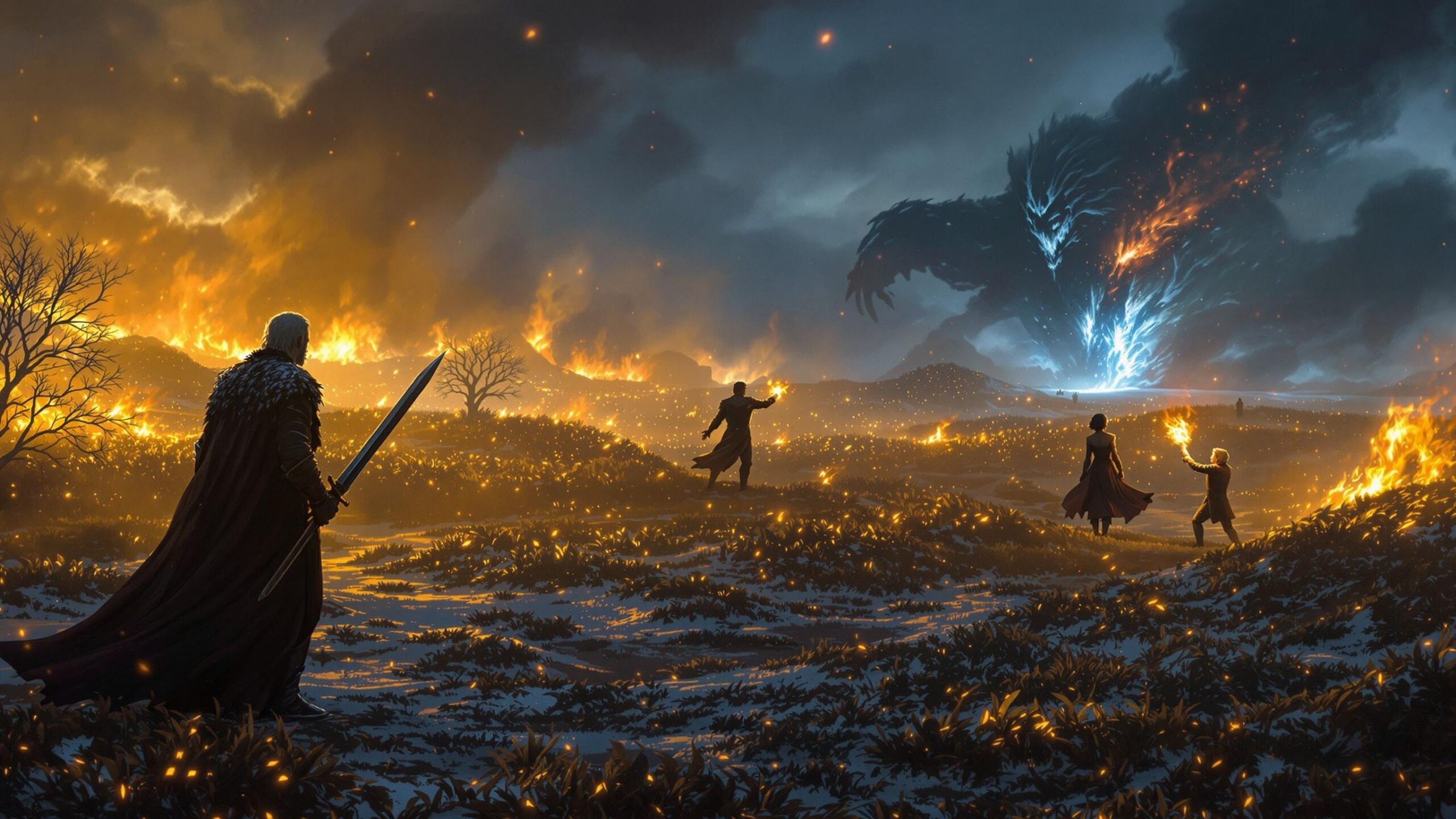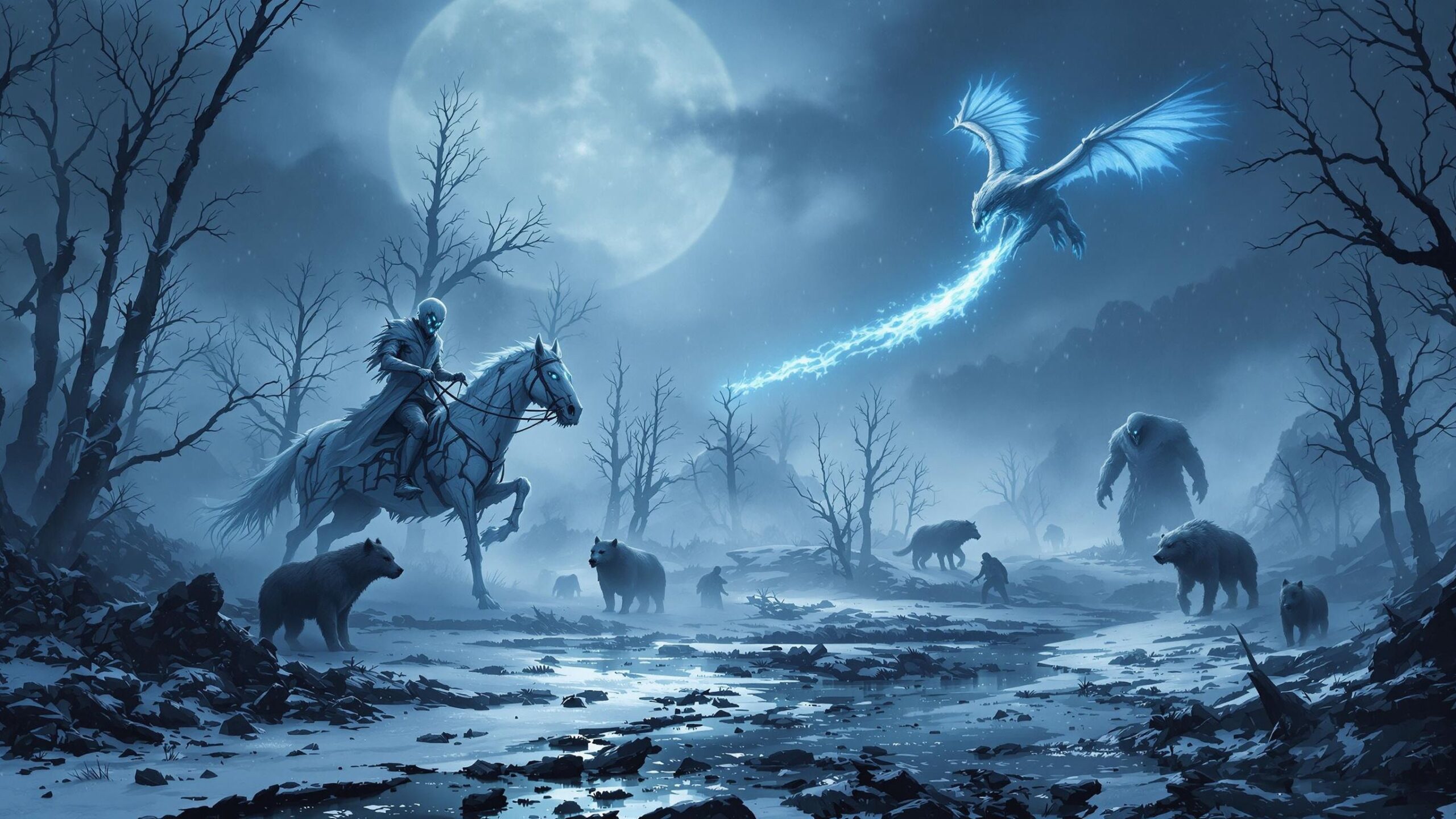In the brutal and power-hungry world of Game of Thrones, compassion was often a liability, and ruthlessness was the currency of survival. From the Iron Throne in King’s Landing to the far reaches of Essos, kings and queens were judged not only by their lineage and titles but by the extent to which they would go to hold power. Some masked their cruelty behind charisma, others embraced tyranny outright, but all left a bloody mark on the realm. These rulers made the hard choices—or horrifying ones—that shocked audiences and reshaped Westeros forever. Whether through fire, steel, betrayal, or manipulation, these ten monarchs reigned with an iron will and little regard for morality.
#10: Stannis Baratheon
Stannis, rightful or not, was a man of unwavering principle and brutal discipline. He was not a sadist like Joffrey nor a tyrant like the Mad King, but his commitment to law and prophecy made him one of the most cold-blooded leaders in Westeros. What made Stannis so ruthless was not cruelty, but his capacity to override emotion for what he believed was divine destiny. He executed his own brother with shadow magic. He burned prisoners alive to appease the Lord of Light. But most horrifying was the sacrifice of his daughter, Shireen—burned at the stake to secure a victory that never came. That moment stripped away any ambiguity about Stannis’s character: he would do anything, even commit the unthinkable, in the name of duty and power.
#9: Balon Greyjoy
As the self-proclaimed King of the Iron Islands, Balon Greyjoy ruled with an iron fist and a heart hardened by years of rebellion. He rejected his son Theon after his long stay with the Starks, favoring violence and conquest over reconciliation. Balon’s entire leadership style was predicated on the Old Way—pillaging, taking salt wives, and scorning any notion of peace. He plunged the Ironborn into doomed wars, including an ill-fated rebellion against the North that ultimately led to Theon’s tragic downfall. His rejection of diplomacy and his willingness to throw away lives for pride cemented his reputation as a ruler blinded by tradition and ruthlessness. He wasn’t mad, but he was rigid and cold, and his people suffered for it.
#8: Renly Baratheon
At first glance, Renly may not seem like he belongs on a list of ruthless rulers. Charismatic, charming, and socially progressive, he was beloved by many. But Renly’s claim to the throne—despite having no direct legal right—was backed by political manipulation and ambition that cost lives. His refusal to join forces with his brother Stannis split their faction and contributed to prolonged war. He also used his charisma to undermine rightful succession and wasn’t above threats or deception to secure loyalty. While not outwardly violent, Renly’s ambition masked a quiet ruthlessness: a willingness to spark civil war and put thousands at risk for personal power.
#7: Euron Greyjoy
Euron was chaos incarnate—a pirate king with no moral compass and a taste for the theatrical. After murdering his brother Balon and taking control of the Iron Islands, he set his sights on dominating Westeros. His methods were as cruel as they were flamboyant: flaying prisoners, ambushing fleets, and publicly humiliating his enemies. Euron wasn’t strategic—he was brutal and impulsive. He handed Yara over to Cersei, killed two Sand Snakes, and delighted in sadism. Unlike other rulers who justified their cruelty as necessity, Euron reveled in it. His reign was a nightmare fueled by violence, fear, and unchecked ego—a true symbol of anarchy under a crown.
#6: Daenerys Targaryen
Daenerys’s arc from liberator to destroyer is one of the most debated in the series, but her ruthlessness was undeniable. Early on, she used fire to liberate cities like Astapor and Meereen, punishing slavers and crucifying hundreds of masters. While initially framed as justice, her methods became increasingly extreme. Her execution of the Tarlys after they surrendered, and her final decision to burn King’s Landing after it had already surrendered, showcased the darkest turn in her character. She believed in her cause so deeply that anyone opposing her vision of a better world became an enemy. Daenerys didn’t see herself as a tyrant—but that was precisely what made her so dangerous.
#5: Mance Rayder
As the King-Beyond-the-Wall, Mance united a fractured people for a cause—survival. While less conventionally ruthless than others on this list, Mance showed a willingness to defy kings, break rules, and risk annihilation for freedom. He manipulated, coerced, and even sacrificed others to keep the wildlings moving. His refusal to kneel to Stannis, even at the cost of being burned alive, exemplified a merciless commitment to his ideals. Mance didn’t kill for cruelty’s sake—but he led his people through death and fire without apology. In his own way, he embodied a cold and uncompromising style of leadership that demanded loyalty through strength and unshakable resolve.
#4: Robert Baratheon
Though often remembered for his boisterous personality and fondness for drink, Robert was a deeply flawed and ruthless king. He may have ended the Targaryen dynasty, but he also helped usher in decades of political instability. Robert ordered the deaths of Targaryen children, was indifferent to governance, and enabled men like Littlefinger and Varys to manipulate the court unchecked. His apathy toward rule caused chaos that ultimately led to civil war. While not malicious in the way Joffrey was, Robert’s carelessness, wrath, and history of violence left a legacy of bloodshed and disorder. His neglect was its own kind of cruelty—one that made others pay for his failures.
#3: Robb Stark
The Young Wolf was a noble king, but that nobility was married to a ruthless pragmatism when war demanded it. He executed Rickard Karstark to uphold justice, even though it fractured his alliance. He sent Theon to negotiate with Balon Greyjoy, indirectly sparking the betrayal of Winterfell. And most fatefully, he married Talisa for love, betraying his alliance with House Frey and condemning his army. Robb wasn’t a villain, but he wasn’t soft either. He waged war with skill and intensity, executing Lannister prisoners, commanding brutal campaigns, and trying to bring justice to a lawless kingdom. His downfall came not from a lack of ruthlessness, but from underestimating how much more ruthless his enemies could be.
#2: Joffrey Baratheon
Perhaps the most infamous example of unchecked power, Joffrey’s cruelty was legendary. Arrogant, sadistic, and spoiled, he wielded his crown like a child with a loaded weapon. He ordered executions for sport, humiliated Sansa, and delighted in suffering. The beheading of Ned Stark—against his council’s advice—plunged Westeros into chaos. He regularly tortured people for amusement, shot prostitutes with crossbows, and made a mockery of justice. What made Joffrey terrifying wasn’t just his cruelty—it was his complete lack of empathy. He didn’t rule from strategy or fear; he ruled through childish impulse and casual evil. His death may have shocked audiences, but few mourned the end of his reign.
#1: Cersei Lannister
No ruler in Game of Thrones matched Cersei’s blend of intelligence, ambition, and cold-blooded ruthlessness. From the shadows of her children’s reigns to her final turn as Queen of the Seven Kingdoms, Cersei left a trail of destruction. She orchestrated the deaths of her enemies, blew up the Great Sept with wildfire, and manipulated everyone from Jaime to the High Sparrow. Her reign was one of paranoia, vengeance, and strategic cruelty. Cersei didn’t burn cities with dragons—she weaponized politics, betrayal, and fear. Even as her world crumbled, she clung to power with icy resolve. Her legacy wasn’t just marked by war—it was defined by her capacity to destroy lives from a throne of lies.
From fire and blood to manipulation and terror, these kings and queens ruled with a heavy hand and a darker heart. Their stories were a testament to how far people will go to keep a crown—and how much their kingdoms pay in the process.




